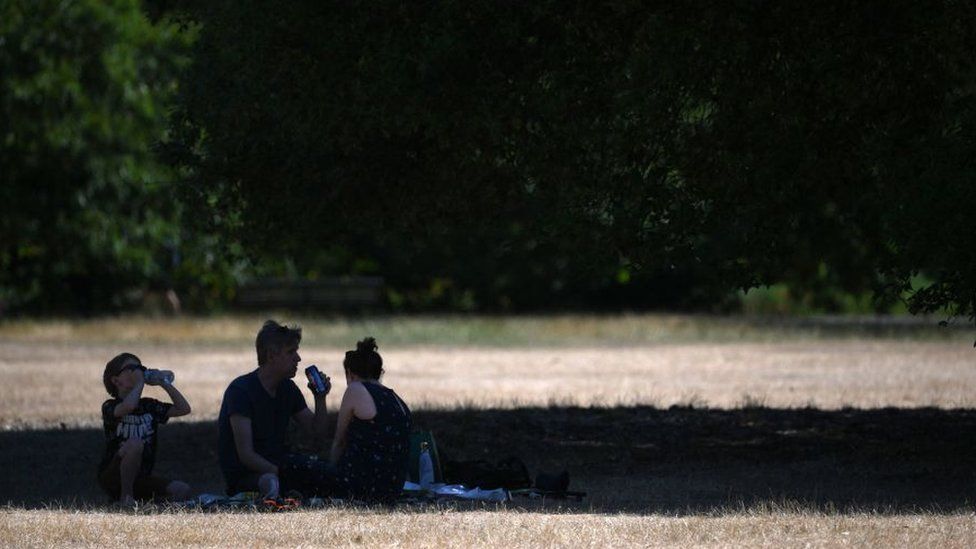 Getty Images
Getty ImagesAn amber warning for extreme heat has begun for England and parts of Wales as the UK braces for record temperatures.
The Met Office warning will extend to southern Scotland from Monday until Tuesday, when England’s alert will rise to red for the first time.
Network Rail and Transport for London have warned people to only travel if necessary on these days.
A national emergency has been declared, with temperatures possibly reaching 41C (106F).
That would be the highest temperature ever recorded in the UK – above the current high of 38.7C set in Cambridge in 2019.
The amber warning means health problems are more likely for some; substantial changes are required to work and routines; water safety incidents could increase as people head to the coast, lakes and rivers; and transport delays are possible, with worries for those caught up in them.
Extra measures are being put in place by the government – more ambulance call handlers and extra capacity for the 111 helpline are planned for Monday and Tuesday.
People have been asked to look out for vulnerable relatives and neighbours who may be suffering in the heat.
The government held an emergency Cobra meeting on Saturday to look at dealing with the heatwave. Labour criticised the prime minister for reportedly not attending, and for his plans to host a private lunch at Chequers on Sunday for some Conservative MPs.
Deputy leader Angela Rayner said Boris Johnson was “preparing to party while Britain boils. Missing in action again”.
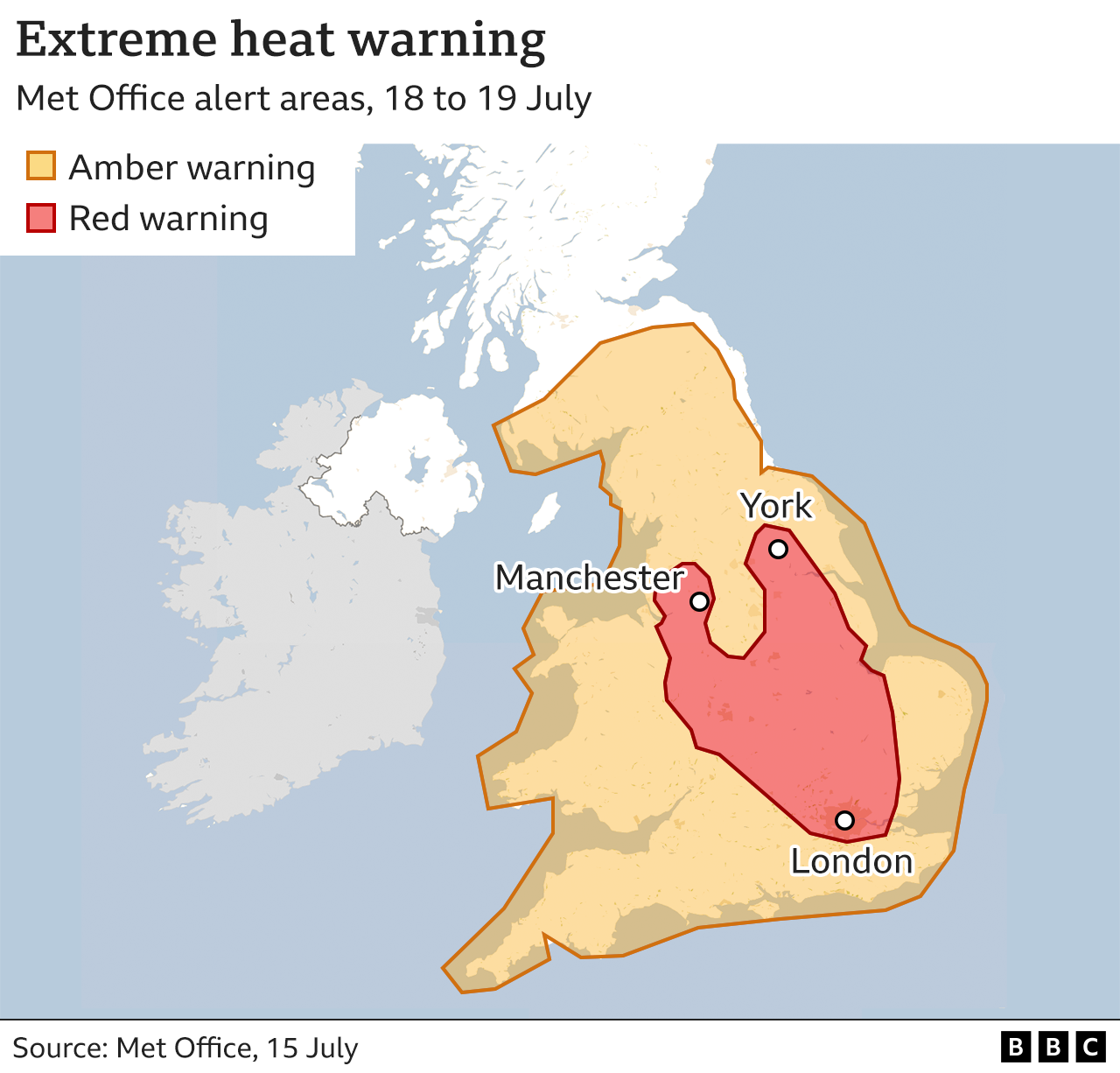
Network Rail and Transport for London warned services were likely to be impacted by the extreme heat and customers should expect delays, cancellations and short notice changes to services.
Customers have been advised to carry water with them and not to board trains or buses if they feel unwell.
Meanwhile, amid the Tory leadership race, Alok Sharma, president for United Nations climate change summit COP26, said he would not rule out resigning if the prime ministerial candidates were weak on “net zero” – the government’s plans to cut climate-damaging carbon emissions.
The five Conservative leadership candidates have expressed varied levels of commitment to the policy.
In an interview with the Observer, Mr Sharma said some of those standing had been “lukewarm” on net zero and that the policy would be essential to prevent “incredible damage” to the country’s global standing. “I don’t rule anything out and I don’t rule anything in,” he said, when pressed on whether he could resign over the issue.
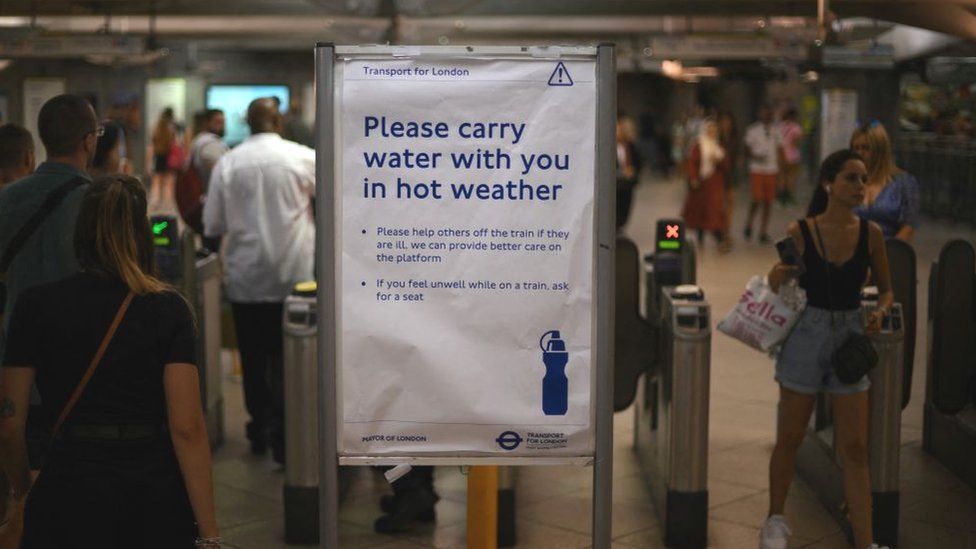
The Met Office red warning – the highest level – is for extreme heat and covers an area including London, Manchester and York on Monday and Tuesday.
It is the first time it has been issued since the warning system for heat started last year.
Elsewhere:
- Some schools will also close early next week and some hospital appointments will be cancelled
- In east Kent, hundreds of people were left with either no water or low pressure on Saturday after a power failure on Friday evening
- There are concerns for safety as people head to rivers, beaches and canals. A teenage boy died after getting into the water at a quarry in Lancashire last week.
- In Europe, deadly wildfires have broken out in Portugal, Spain and southwestern France
- Firefighters have urged people to choose picnics over barbeques because of the risk of wildfires
BBC Weather forecaster Susan Powell said the situation was unprecedented.
She said there was an 80% chance the UK would break its current highest temperature record. Temperatures could reach as high as 41C in England on Monday, with 38C quite widely across England and Wales.
Tuesday is set to see highs of 40C, or above, in eastern England. Northern Ireland and Scotland could also see their temperature records broken, she said.
On top of that, the temperature overnight on Monday into Tuesday could also hit a new peak – with highs of 25C expected.
This video can not be played
To play this video you need to enable JavaScript in your browser.
As well as the Met Office warning, the UK Health Security Agency (UKHSA) has issued its highest level four heat alert to health and care bodies – warning illness and death could occur “among the fit and healthy”.
Most deaths during a heatwave are usually heart attacks or strokes caused by the strain of trying to keep body temperatures stable.
Experts say that climate change is making heatwaves more likely as well as more intense and lasting longer.
The world has already warmed by about 1.1C since the latter half of the 18th century, and experts predict that temperatures will keep rising unless governments make steep cuts to emissions.
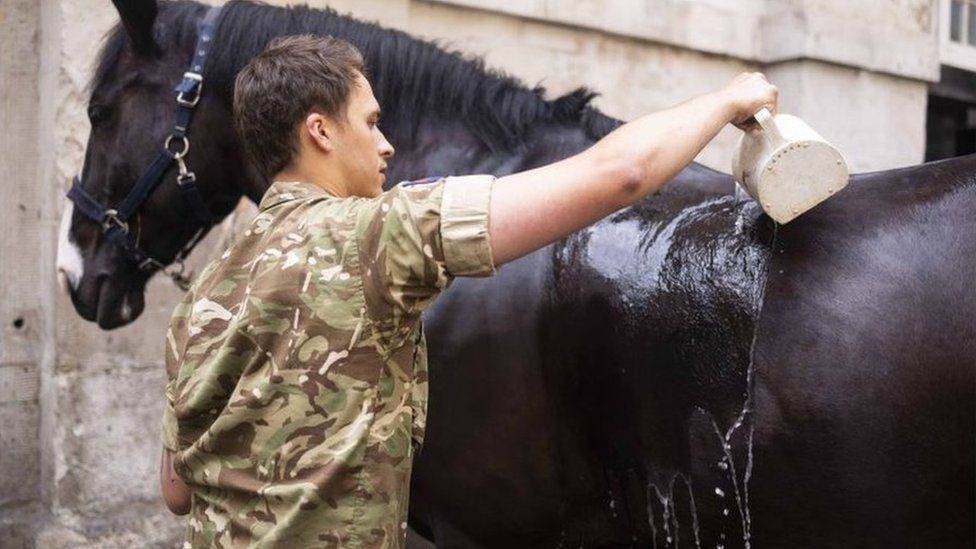

How are you coping in the heat? Share your experiences haveyoursay@bbc.co.uk.
Please include a contact number if you are willing to speak to a BBC journalist. You can also get in touch in the following ways:
- WhatsApp: +44 7756 165803
- Tweet: @BBC_HaveYourSay
- Upload pictures or video
- Please read our terms & conditions and privacy policy
If you are reading this page and can’t see the form you will need to visit the mobile version of the BBC website to submit your question or comment or you can email us at HaveYourSay@bbc.co.uk. Please include your name, age and location with any submission.
-
-
3 hours ago
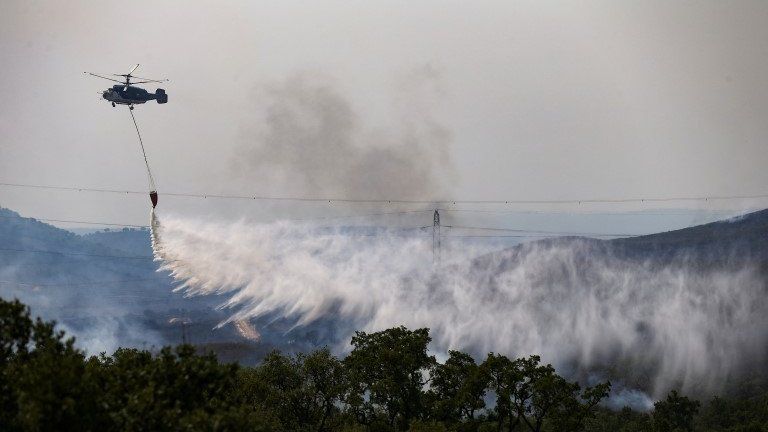
-
-
-
15 June
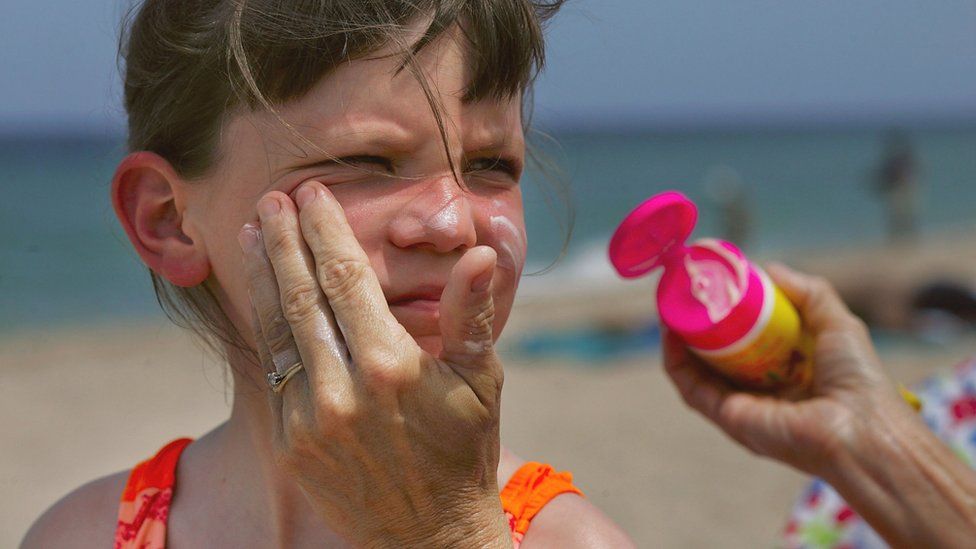
-
-
-
16 June

-
-
-
15 hours ago
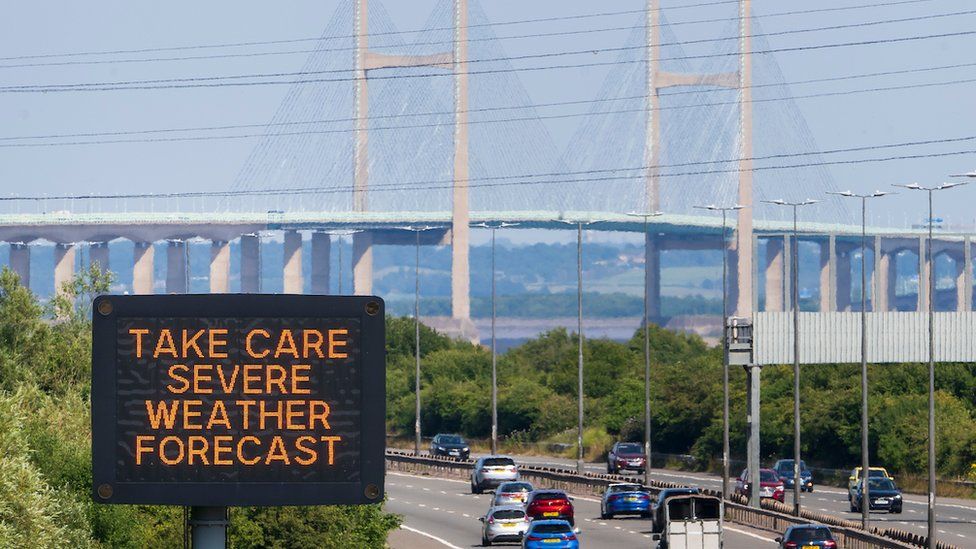
-





